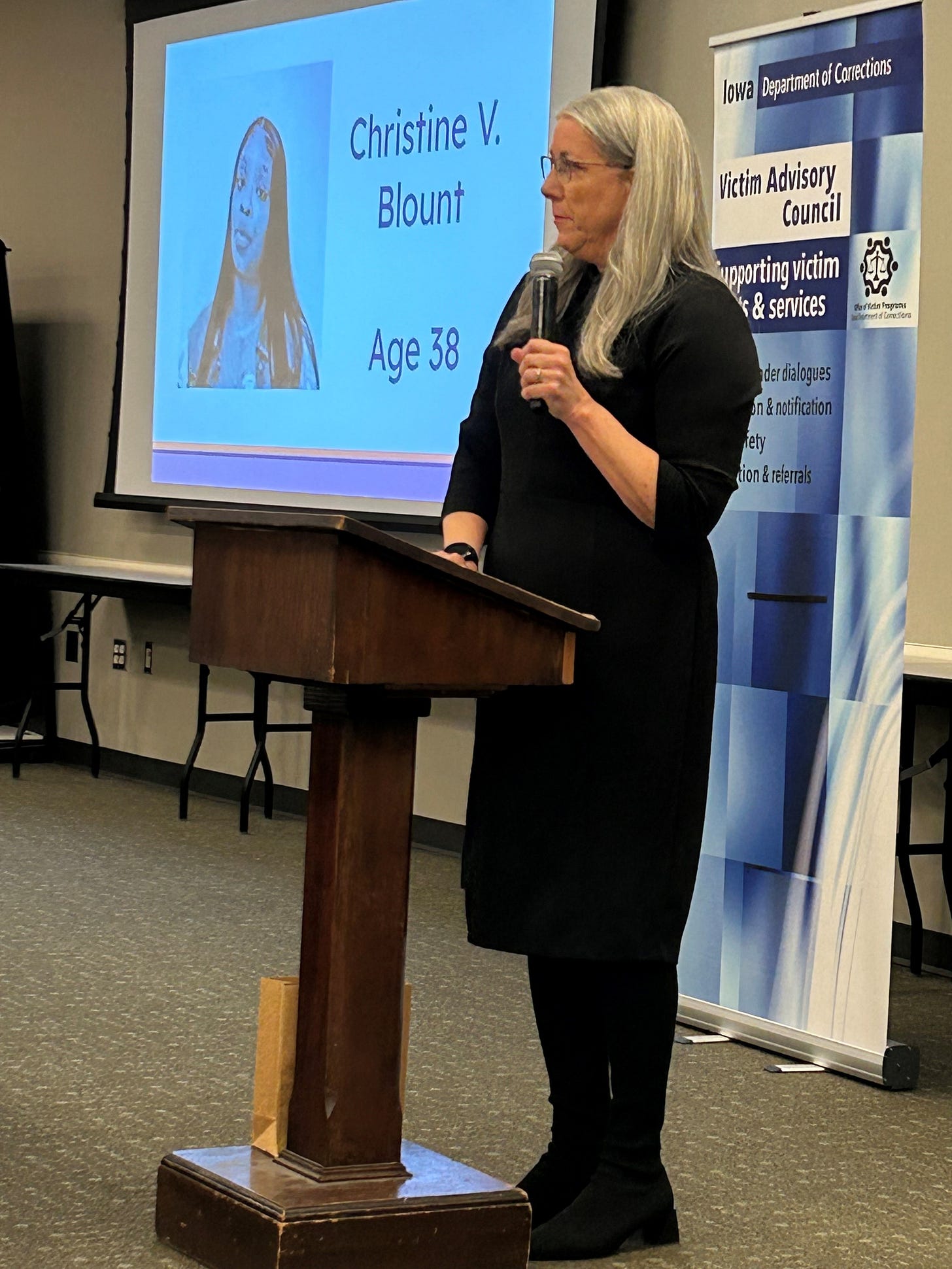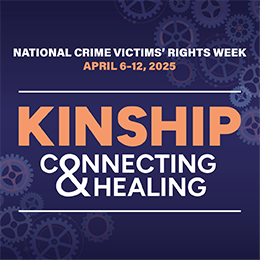It's Crime Victims' Rights Week. What's the best way to honor survivors?
Events are worth attending, but we cannot stop there
National Crime Victims Rights Week is April 6-12. You’d be forgiven if it’s not on your calendar.
Survivors of crime are not the focus of a criminal proceeding — where the defendant’s rights take precedent — let alone outside the courtroom. So what is the best way to honor them and recognize their needs?
April is a busy month for victim advocates. April 2025 marks the 25th year of observing Sexual Assault Awareness Month. And it’s also National Child Abuse Prevention Month.
Journalists generally pay little attention to these designations, because they are so common. And if a survivor of crime has a good story to tell, it’s a good story any time of year.
One event that’s worth coverage is the annual commemoration by the Iowa Department of Corrections’ Victim Advisory Council and the Iowa Organization for Victim Assistance. This year’s event was held Friday, April 4, at Polk County River Place in Des Moines. I’ve gone for a few years, and I always leave wishing more people would attend.
The most emotional aspect is the reading of the names of all Iowans whose lives were lost due to violent crime over the past year. This year, organizers placed 99 flowers, one for each victim, in vases.

Tears flow and audience members gasp as the names are read and their ages and photos are shown. The list shows the breadth of crime’s impact in Iowa. The ages of those killed ranged from 2 1/2-week-old Genevieve Gibbs, who died on Jan. 14, 2025, in Crawford County — her father was charged with first-degree murder — to Allen “Willie” E. Heisel, 90, who died as a result of vehicular homicide on May 10, 2024, in Lee County.
Other victims died of hit-and-runs, shootings, domestic abuse, and other causes. The victims are disproportionately black and Latino. While Polk, Linn, and other big counties dominate the list, about 30% percent of the deaths occurred outside a metropolitan county.
The event also features a speaker who has survived crime, as well as awarding the John & Kay Egan Award to an Iowan who has served crime victims.
This week, more events are scheduled around Iowa this week. Des Moines Area Community College will have activities throughout the week on several campuses. Panel discussions and workshops at the Ankeny campus on April 8-9 will feature topics including a domestic violence simulation and first responder trauma.
Communities across the country have memorial and prayer services, walks, butterfly releases, candlelight vigils, roundtables, resource fairs, and other events. Here’s a list compiled by the Department of Justice’s Office of Victims of Crime.
What often strikes me is who’s often missing from these events: Survivors of crime. These events are designed by and for those of us in the business: law enforcement officers, social workers, prosecutors, and victim advocates. Certainly, professionals who serve victims deserve support and recognition for the difficult, traumatic, and often thankless work they do.
But the events leave me wondering: Do these commemorations do enough to address the lasting physical, emotional, and financial effects that survivors face?
One thing we all can do is lobby for the necessary resources to serve victims. For about a decade, the state of Iowa has appropriated $5 million a year for victim services — despite increasing needs and huge federal funding cuts. The federal government’s support to Iowa has fallen significantly, from $35 million in fiscal year 2018-19 to $17 million in 2022-23.
To help fill the gap, Gov. Kim Reynolds transferred $5.4 million from federal pandemic relief funding last year.
That’s one-time money, however, and the risk of losing more federal funding has only increased under the Trump administration. Dozens of nonprofits that serve survivors would be in jeopardy — resulting in the loss of direct services, including counseling, housing, employment support, and financial assistance.
These resources don’t simply assist survivors. They help all of us, representing an investment in our health and safety. The impact of crime ripples across communities, leaving us all poorer, more traumatized, and less safe.
I’m thrilled to be part of the Iowa Writers’ Collaborative. Check out the lineup of writers and consider subscribing.






Lynn, Thank you for this excellent piece for National Crime Victim Rights Week. I am proud that you and County Attorney Kimberly Graham are promoting crime victim justice. I worked with crime victims for 38 years. In 1989, a legislative task force recommended consolidating state-level crime victim services together in a new Crime Victim Assistance Division in Attorney General Tom Miller’s Office. At that time, the state funding for 16 domestic and sexual abuse victim programs was only $96,000. There were no state funds for homicide victim families, vehicular crash victims, or victim services in County Attorney’s Offices. The state investment to help crime victims has been stuck at $5,016,708 since 2017. In 1998, General Miller proposed legislation to bring all of the statutes for crime victims into one place in the Iowa Code. The result was Iowa Code Chapter 915. Justice is not served until victims are served.
Thanks for highlighting victims of crimes in Iowa. Great information.